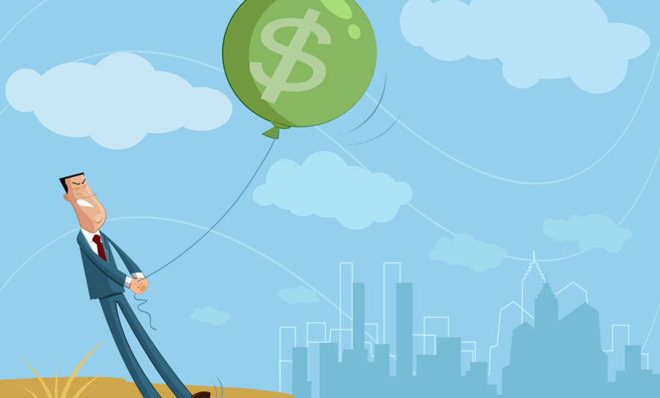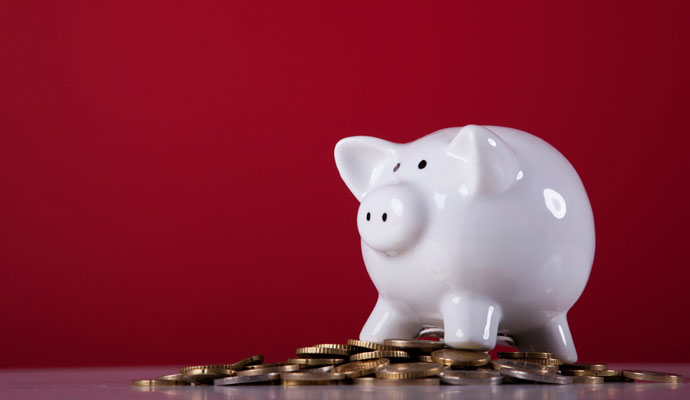The dangers of lifestyle inflation — and how to avoid it
You can't assume you're going to stay healthy or keep your job forever

A free daily email with the biggest news stories of the day – and the best features from TheWeek.com
You are now subscribed
Your newsletter sign-up was successful

Margo Schlossberg never considered herself to be much of an indulgent spender.
Even though there was plenty of opportunity to splurge on fine dining and high-end beauty treatments in the upper-middle-class Washington, D.C., suburb of Reston, Virginia, where she lives, she never felt particularly tempted to partake.
That is, until the 44-year-old marketing professional landed a hefty raise that made her paycheck fatter by $2,000 more per month — which had an almost immediate effect on her spending.
The Week
Escape your echo chamber. Get the facts behind the news, plus analysis from multiple perspectives.

Sign up for The Week's Free Newsletters
From our morning news briefing to a weekly Good News Newsletter, get the best of The Week delivered directly to your inbox.
From our morning news briefing to a weekly Good News Newsletter, get the best of The Week delivered directly to your inbox.
"I started indulging more in the little things," Schlossberg says. "I got more manicures and pedicures, went out to eat a lot more and splurged on fancy drinks." On top of that, she took a pricey dream trip to Sri Lanka.
Schlossberg's rationale? Her workload had doubled and she was putting in an intense, ten-hour workday while also enduring a taxing, two-hour commute. So she felt deserving of the good life — or at least a better one.
While Schlossberg's newfound spending didn't put her in the poorhouse, it didn't get her ahead, either. Her savings often fluctuated due to her splurging, and she never took the time to rejigger her budget to see how her added income could be put to better use. "I didn't run into money trouble, but I should have known better," she says. "But, hey, I'm human."
Sound familiar?
A free daily email with the biggest news stories of the day – and the best features from TheWeek.com
Schlossberg certainly isn't the only person guilty of using a raise as an excuse to bump up her spending. In fact, there's a popular term for this common story line: lifestyle inflation, or the idea that as you make more, you spend more.
This, in turn, can make you feel a bit like a hamster on a wheel when it comes to your money: You have to keep running at full speed just to keep up with your new bills and satisfy your spending urges — without making any progress on your financial goals.
The social psychology behind lifestyle inflation
Numerous studies support the notion that as incomes rise, so does the tendency to spend, not save. A Federal Reserve report found, for instance, that less than half of Americans earning between $75,000 and $99,999 saved any money whatsoever — and as many as 16 percent of those within that income bracket actually went into debt.
At the same time, a recent Brookings Institute study found that families stuck living paycheck to paycheck are actually twice as likely to be solidly middle class than low-income. The authors dubbed this demo the "wealthy hand to mouth," a group that tends to be older, educated and high-earning — and yet can't seem to get ahead.
So why, despite our best intentions, do we often end up putting our raises toward a bigger apartment or luxury SUV before we tackle our savings goals?
For starters, we're conditioned to always be on the hunt for more. Psychologists refer to this as the "hedonic treadmill," or our instinctive desire for bigger, better comforts every chance we get.

"It's human nature to want to improve one's economic and social standing — whether that's upgrading housing, clothing or toys," says Brad Klontz, a CFP® and financial psychologist. "If it wasn't, we would all still be living outdoors wearing animal skins."
The difference is that today, instead of being spurred by survival of the fittest, we're driven by the "Keeping Up With the Joneses" effect. It's the need to purchase items — often beyond our means — to show we're doing at least as well as, if not better than, our neighbors.
And the effect of this one-upmanship shouldn't be taken lightly: One 2010 study concluded that people tend to be happier when they have more money — but only if it gives them the perception of being better off than friends and peers.
"Many of our spending decisions are made by our unconscious brains, which equate social standing with life or death," explains Klontz. "And the further we drift from the norm in our social group, the more anxiety we feel." Translation: Seeing that shiny new car in a neighbor's driveway cues our brain to think that our social standing is being threatened — spurring us to spend as soon as we have the resources.
There's also the entitlement factor, which Klontz calls the "I work hard, so I deserve to buy nice things" script. "While it's true that it is nice to have your hard work reinforced with some indulgence, it should not come at the expense of thoughtful financial planning," he says. "Ironically, although this belief feels like wealth in the moment, it actually perpetuates a feeling of lack."
So while there's nothing wrong with rewarding yourself for your hard work, one of the dangers of this behavior is becoming used to a new, more expensive normal — thus unraveling any previous discipline you may have built into your budget. Just ask Schlossberg. "It's like when someone goes on a diet, loses weight and then can eat again," she says. "Those luxuries soon become mandatory parts of your life."

This story was originally published on LearnVest. LearnVest is a program for your money. Read their stories and use their tools at LearnVest.com.
More from LearnVest...
-
 Political cartoons for February 16
Political cartoons for February 16Cartoons Monday’s political cartoons include President's Day, a valentine from the Epstein files, and more
-
 Regent Hong Kong: a tranquil haven with a prime waterfront spot
Regent Hong Kong: a tranquil haven with a prime waterfront spotThe Week Recommends The trendy hotel recently underwent an extensive two-year revamp
-
 The problem with diagnosing profound autism
The problem with diagnosing profound autismThe Explainer Experts are reconsidering the idea of autism as a spectrum, which could impact diagnoses and policy making for the condition